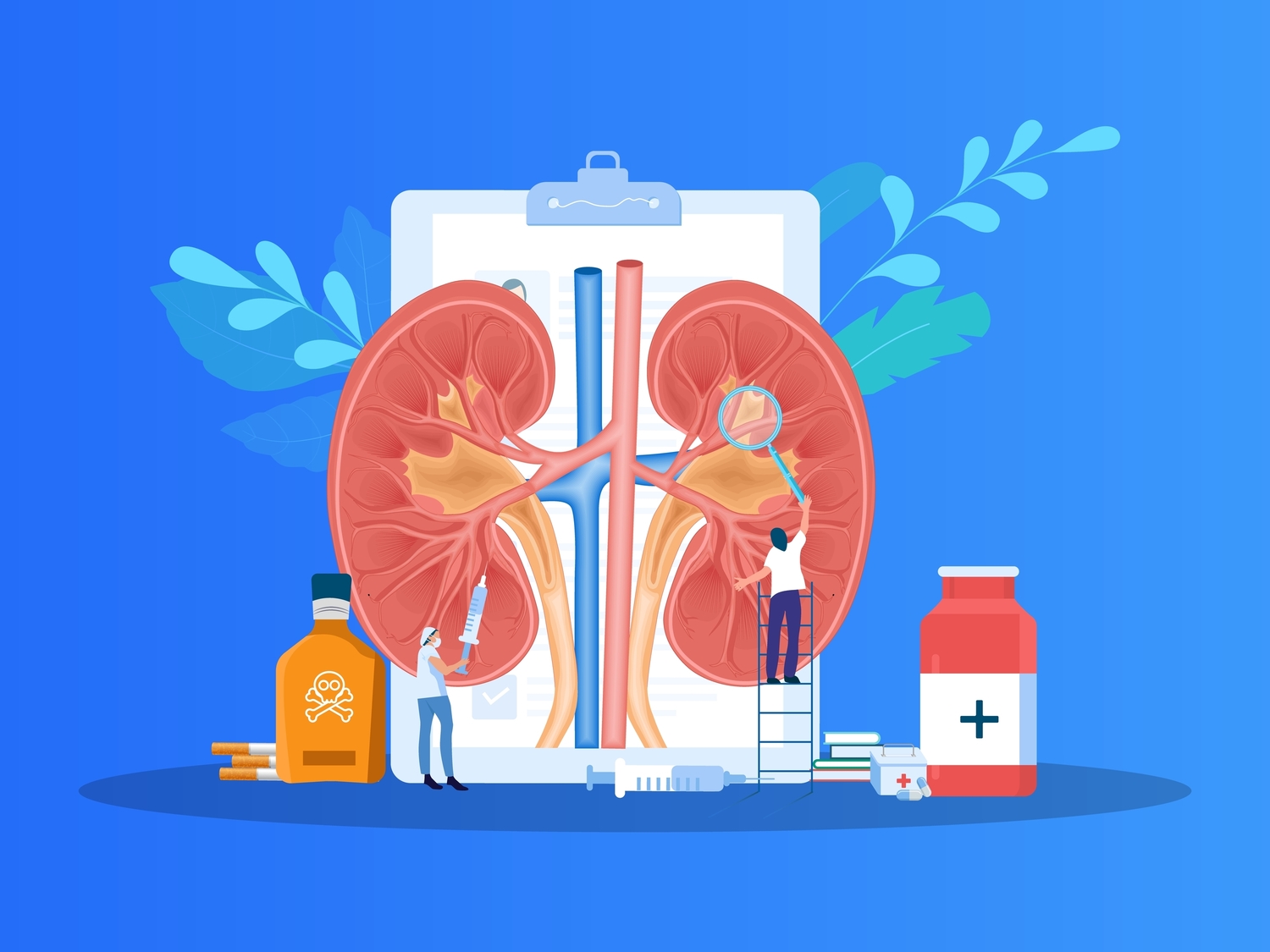Signs Your Kidneys Need Cleaning
Kidneys play an essential role in maintaining overall health by filtering waste products, excess fluids, and toxins from the blood. Unfortunately, due to various factors such as poor diet, inadequate fluid intake, and lifestyle choices, toxins can accumulate, potentially impairing kidney function. While the body has mechanisms to help cleanse the kidneys, there are certain signs that may indicate your kidneys need extra attention. This article will explore these signs in a detailed and informative manner.
Fatigue and General Weakness
One of the first signs that your kidneys might be struggling to perform their function is persistent fatigue. Kidneys produce a hormone called erythropoietin, which helps create red blood cells carrying oxygen to the body.

Frequent Urination
An increased frequency in urination, especially during the night (nocturia), can be an indicator of kidney problems. While frequent urination can also point to other health issues such as diabetes or urinary tract infections, it is one of the early warning signs of impaired kidney function.
Blood in Urine
The presence of blood in the urine, known as hematuria, is a serious indication that the kidneys may need cleaning. Healthy kidneys typically prevent blood cells from entering the urine, but damaged filters might allow this to happen.
Swelling in Legs, Ankles, and Feet
Kidneys remove extra fluid from the body. When they aren’t working properly, this extra fluid can accumulate in various parts of the body, causing swelling, especially in the legs, ankles, and feet.
Puffy Eyes
Consistently puffy eyes, particularly in the morning, may indicate that your kidneys are leaking a significant amount of protein into the urine instead of keeping it in the body.
Dry and Itchy Skin
Healthy kidneys perform a variety of functions that are essential to maintaining the right balance of minerals and nutrients in the blood. Dry and itchy skin can be a sign that the kidneys are unable to maintain this balance, often due to a buildup of waste in the bloodstream.
Trouble Sleeping
When the kidneys aren’t filtering properly, toxins stay in the blood rather than leaving the body via the urine. This can make it difficult to sleep, contributing to insomnia or restless nights.
Poor Appetite and Metal Taste
A buildup of waste in the blood can alter taste and potentially cause a metallic flavor in the mouth. Additionally, impaired kidney function can result in a loss of interest in food and poor appetite.
High Blood Pressure
The kidneys play a critical role in regulating blood pressure by controlling the amount of sodium in the blood and releasing the enzyme renin. When they aren’t functioning properly, it can lead to difficulty in maintaining normal blood pressure levels.
Muscle Cramps
Electrolyte imbalances caused by impaired kidney function can contribute to muscle cramps. For example, low levels of calcium and poorly controlled phosphorus can lead to muscle cramping.
Nausea and Vomiting
Excess waste buildup in the bloodstream, resulting from kidney dysfunction, can lead to gastrointestinal symptoms such as nausea and vomiting.
How to Support Kidney Health
If you suspect your kidneys may need extra care, consider these lifestyle changes to support kidney health:
– Hydration: Proper fluid intake helps kidneys clear sodium, urea, and toxins from the body.
– Healthy Diet: Consume a diet rich in fruits, vegetables, and whole grains while limiting salt, sugar, and high-fat foods.
– Regular Exercise: Physical activity benefits overall health and helps manage conditions like high blood pressure and diabetes, which can affect kidney function.
– Avoid Smoking and Alcohol: Both smoking and alcohol can harm the kidneys over time.
– Regular Check-ups: Monitor your kidney function through routine medical checks, especially if you have conditions like high blood pressure or diabetes.
Being mindful of these signs can help catch kidney issues early, allowing for timely interventions and lifestyle changes to support overall kidney function. If you experience any of these symptoms persistently, consult a healthcare professional for an accurate diagnosis and appropriate treatment plan. Maintaining kidney health is crucial, as these organs play a vital role in overall body functionality and well-being.
By staying informed and proactive, you can protect your kidneys and lead a healthier life. Always seek professional medical advice if you have concerns about your kidney or overall health.

